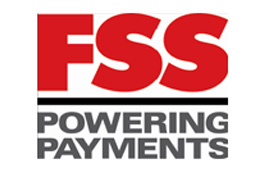Financial Software and Systems (FSS) is a leader in payments technology and transaction processing. The company offers an integrated portfolio of software products, hosted payment services, and software solutions built over 30+ years of experience. FSS, end-to-end payments products suite, powers retail delivery channels including ATM, POS, Internet, and Mobile and critical back-end functions including cards management, reconciliation, settlement, merchant management, and device monitoring.
Below is an excerpt from a recent interaction with Archit Mylandla, Executive Director, FSS:
Prateek: Elaborate on what is smart reconciliation is and its significance to banks?
Archit Mylandla: With digital payments growing exponentially, millions of transactions are exchanged daily between multiple payment ecosystem constituents. The accounting records are maintained by underlying payment systems across which these transactions flow need to be in sync. A single discrepancy can create significant overheads and for reconciliation teams handling ever-growing payment workloads, this remains a perennial challenge. As an example, the customer could have canceled a transaction, but the corresponding credit may have not been received due to a technical glitch or a system error, or an actual fraud that has occurred. Reconciliation refers to the process of harmonizing these transaction records and is a critical aspect of the payment lifecycle. Smart reconciliation processes can help financial institutions handle a large influx of transaction data, reduce the risk of errors, mitigate operational risk, and address compliance needs via automation of critical workflows.
Prateek: What are some of the challenges faced by financial institutions in reconciliation?
Archit Mylandla: 2020 saw an explosion in the volume of payments transactions around the globe. The persistent growth in transaction volumes combined with the emergence of new payment instruments and greater regulatory compliance requirements brings the need for more efficient reconciliation operations to the fore.
Conventionally, transactions typically were processed in batches and payments took days, to process, clear, and settle. Now, with Open Banking and Instant Payments increasingly becoming mainstream, reconciliation, and settlement cycles have been compressed. Current manual or semi-automated processes simply cannot scale to accommodate new business demands. From FSS’ experience of leading several reconciliation transformations projects, financial institutions grapple with several issues.
Many financial institutions are reliant on semi-automated workflows for reconciliation, which increases the scope for delays and errors, escalating costs and risks. For instance, FSS teams have observed across several deployments that variances arising during the reconciliation matching process often need to be manually reviewed and investigated as the underlying workflows are unable to resolve these automatically. As more consumers embrace contactless payments, card-not-present transactions, and alternative P2P payment options, the growing diversity of payment modes, multiple currencies, disparate data sources, and file formats magnify the problem. Teams deployed at the back-office struggle with growing transaction volumes, and a high number of unmatched transactions which add to the operational risk.
Another significant challenge is that many financial systems lack an enterprise-wide system to reconcile all transactions. Many reconciliation systems have evolved over time between multiple management approaches and are performed by multiple point systems – built in-house or sourced from multiple vendors. The result is a patchwork quilt of different reconciliation approaches and resulting fragmentation due to varying practices in areas such as data management, reconciliation matching, and exception handling, which escalates operational complexity. The whole process is expensive, difficult to keep track of, and hinders the ability to scale.
Conventional systems are also not flexible to rapidly onboard new emergent payment methods such as real-time payments. The average time for teams to build and onboard a new reconciliation can take between eight and twelve weeks, impeding agility to respond to the market.
Meeting these challenges will require financial institutions to embrace a “zero-touch” approach to manage critical back-office operations. An effective “zero-touch” approach is based on an extremely high level of automation that keeps pace with the growing volume, velocity, and variety of data and reconciles and settles transactions in near real-time.
Prateek: What is zero-touch vision and how can it help organizations address the challenges?
Archit Mylandla: The zero-touch vision is an outcome of FSS’ three-decade experience of working with banks on reconciliation projects. Across deployments, we have observed a high degree of dependence on manual operations, a high level of inaccuracy, and personnel spending time on addressing false breaks rather than critical, value-adding tasks such as risk mitigation.
Our zero-touch vision leverages new-age technologies such as RPA and ML and simplifies reconciliation via automation of critical workflows activities. The automation capabilities empower teams to fully eliminate repetitive, time-intensive, and error-prone manual tasks and streamline reconciliation operations. The complexity and the risk can be vastly reduced while increasing efficiency and transparency across processes. Some of the direct benefits to FIs are
- 30% improvement in reconciliation time cycles
- 25% lower direct costs as compared to partially automated processes
- 90% lowering of exception investigation handling
- 10% -15% reduction in manpower costs
Prateek: What is FSS Smart Recon and have you seen growth in its demand during the pandemic?
Archit Mylandla: Covid 19 has served as an accelerator for investments in ongoing digital transformation projects. Many financial institutions have found semi-automated reconciliation processes and resultant person dependencies increasingly difficult to manage and are modernizing back-office operations as part of the overall technology transformation agenda.
FSS, an industry leader in payments reconciliation, offers a zero-touch solution that can seamlessly extend to support new payments reconciliation in response to emerging opportunities. Backed by FSS’ three-decade reputation in the payments industry, FSS Smart Recon is used worldwide by over 150 financial institutions to manage end-to-end payments reconciliation and settlement. FSS Smart Recon blends a scalable and extensible cloud architecture, and ML-based data models across multiple reconciliation points to handle massive data sets without sacrificing speed, accuracy, and process efficiency. Operations teams find reconciliation a fast and easy process with a solution that reconciles over 12 billion transactions annually.
FSS Smart Recon can reconcile any transaction type and supports complete automation – data importation and enrichment, reconciliation, exceptions management, disputes, and settlement Built-in scheduler-based processes match transaction records based on criterion specified by the financial institution and automatically pinpoint and address variances that can be managed automatically. The workflows route abnormal exceptions to appropriate employees, and the process is auditable to ensure visibility into reconciliation at each step of the process. FSS also offers advanced reconciliation analytics. With reconciliation data in one place, the teams can more easily run analytics on it, and provide valuable feedback to the wider business for operational improvements.
Prateek: Can you share trends on the adoption of Artificial Intelligence in modernizing back-offices?
Archit Mylandla: We are at an early stage of AI-ML adoption. Progressive financial institutions are looking for self-optimizing reconciliation processes to build a leaner and modern back office. The growing number of channels, instrument complexity, and increased transaction frequency by consumers add to the complexity of the reconciliation process. AI and Machine Learning will have a significant upside on the efficiency of the reconciliation process. By employing machine learning at key reconciliation points, reconcilers can unlock multiples of value in terms of time, operating cost, and avoidance of regulatory penalties.
Advanced ML algorithms can improve process efficiency and have a great number of uses in the context of reconciliation, The reconciliation process typically entails tasks such as onboarding payment classes, extracting, and normalizing data from non-standardized file formats, defining matching rules, and posting entries for settling accounts. Conventional systems rely on a static pre-configured “rule-based system” for matching, exception handling, and settlement. However, these tools can become inefficient while adding new data sources or if new entries are introduced in a particular reconciliation file, these need to be identified manually. Further reconciliation teams need to create, test, and implement new rules whilst balancing the impact on existing rules which extends the reconciliation cycle. With ML-enabled processes, the system automatically “learns” the data sources and patterns, analyses them for likely matches across multiple data sets, highlights reconciliation exceptions, and presents actionable “to do” lists to resolve data issues.
For any such interaction opportunities, you may write to us at [email protected].



